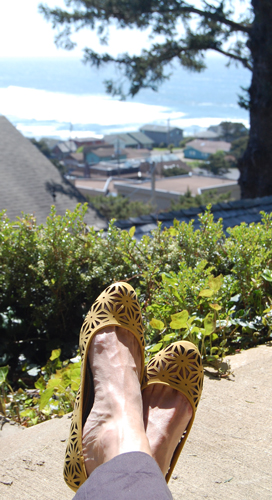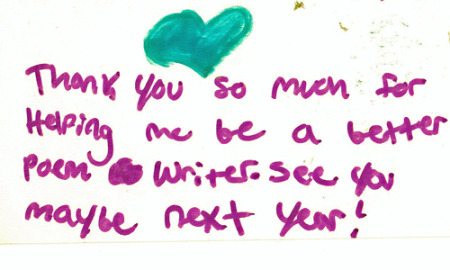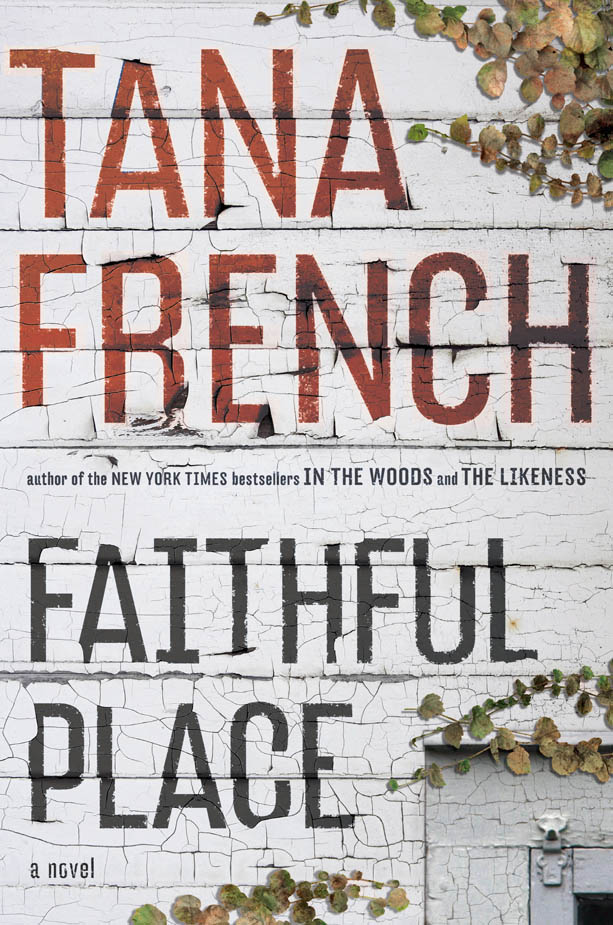Because a few direct questions can lead to endless insight, I'm happy to present Fast Five — short interviews with my favorite writers, and chances to win great books.
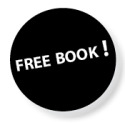
You can win a free copy of Dixmont by Rick Campbell. Simply post your name in the comment section below by Tuesday, Feb. 1, 2011. The winner will be announced the following day.
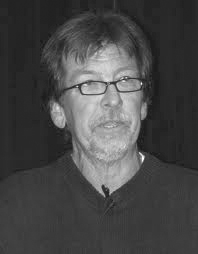 Rick Campbell is the director of Anhinga Press, teaches English at Florida A&M University in Tallahassee, Florida, and helps to run Other Words, an annual writing conference held at Flagler College in St. Augustine, Florida. He's written four poetry books: Dixmont, The Traveler’s Companion, Setting The World In Order, and A Day’s Work. He’s won a Pushcart Prize, an NEA Fellowship, and two fellowships from the Florida Arts Council. Born in Pittsburgh, he now lives in Gadsden County, Florida, with his wife and daughter.
Rick Campbell is the director of Anhinga Press, teaches English at Florida A&M University in Tallahassee, Florida, and helps to run Other Words, an annual writing conference held at Flagler College in St. Augustine, Florida. He's written four poetry books: Dixmont, The Traveler’s Companion, Setting The World In Order, and A Day’s Work. He’s won a Pushcart Prize, an NEA Fellowship, and two fellowships from the Florida Arts Council. Born in Pittsburgh, he now lives in Gadsden County, Florida, with his wife and daughter.
You make good friends in the strangest places. Rick and I met at a high school reunion in which our spouses were reliving their adolescence. Desperate for conversation that traveled beyond the 1970s, Rick and I found common ground in poetry. Since then, we've enjoyed an ongoing conversation about writing, publishing and poems.
We often talk about the music of poetry. Please, tell me, what makes a poem work?
For me, for most I guess, there are a lot of things that make the poem work. Music — whether it’s rhythm, a more traditional idea of beat or meter, or maybe some larger sense of sound, as in composing a song, a symphony maybe — it’s hard for me to define “music” in a poem. It’s like that saying I know it when I hear it. But music isn’t all that’s important; I think a poem needs to make a statement. It needs to say something about the world we live in. It has to tell us, maybe not a truth, but some sort of revelation. When I read a poem I want to say “yes,” that’s how it is, and it’s even better if the poem reveals something to me that I did not know, or that I had not seen before in the way it’s revealed to me. If a poem is going to work, then lots of things, maybe everything has to work. And, for me, not many poems really “work.”
You are an accomplished poet, professor and publisher. What do you know now that you didn't know when you were first writing poems?
In the beginning, when I was 25, I didn’t know anything about poetry. I wanted to write songs. It took me a long time to become even a pretty good poet. I could see what was good in what I was reading, and I read a lot of poetry, maybe 15 or 20 books a week in those first few years. But that does not answer the question. I guess the most important thing that I have learned is to trust the words, to let them come out and then see what happens. In the beginning I tried to force the words into the idea of the poem. Now I know that the words create the poem and the ideas.
Some people say "first thought best thought." Others edit a poem into place. What is your writing process?
I usually write the entire poem during the first draft. Then, if the poem seems worth it, worth hanging on to, I edit and rewrite it until it seems finished. There’s a poem in Setting the World in Order, “The Poem in the River” that I started in 1978 and finished in 1996. I worked on it in three different towns over 2000 miles apart. That’s pretty extreme, but I write and I rewrite. I think it’s sort of combination of first though best thought and think and think again. That phrase is a pretty dangerous thing for a teacher for a teacher to tell a young student. Beginning poets need to work poems for a long time, and take a careful look at each word, each step of the poem’s composition.
Finish this sentence: If not a poet, I'd be . . .
a centerfielder, an itinerant fisherman? I don’t know what I would I have been. I’m not sure I would even have gone to college if I didn’t want to write. I didn’t start college until I was 25; my first major was in anthropology, but I don’t know what it would be like to be one. And I was never good enough to play pro baseball, so I would have starved as a centerfielder.
What is your favorite poem in Dixmont, and why?
Tough one. But I think it’s Intelligent Design and the Click Beetle.
. . . The beetle clicks, leaps, falls, assesses its heads
or tails state, then either crawls off somewhere
or begins again. If grand design
were measured by a success ratio, wouldn't
a simple rollover mechanism be a better idea?
The universe is full of little jokes and games
of chance. I had only a minute chance of getting
throat cancer and I got it. Then I had a 90% chance
of being cured, and maybe I am. The
odds were so slim that the drunk
who hit my wife's car that afternoon
on a lonely country road
would be speeding east as she drove west
on a blue May day . . .
I like the way it moves, how it gets so many things into one poem. I hope everything in it works. When I was first trying to write poems I was often told that I had too many things in one poem. I probably did back then, but I also believed that if I could do it right, then I could make a lot of things hang together and get the poem to leap and then land with grace. I think that poem does it, and that’s why I like it best. In truth though, the poem I like best is always the one I just wrote.
Bonus Question: I'm a word collector. What are your favorite words?
I like provenance, epiphany, redemption, but I don’t know if I have a favorite. A friend and I counted how many times river appears in Setting the World in Order and it was like 33 times or something, but I love rivers far more than the word river. I like “B Flat,” but only when I’m playing that harp.
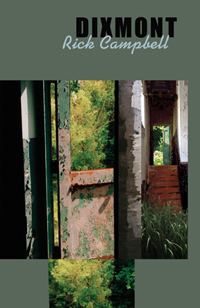 To win Dixmont by Rick Campbell, simply add your name in the comment section below by Tuesday, Feb. 1, 2011. Feeling shy? Email me: dcm@drewmyron.com
To win Dixmont by Rick Campbell, simply add your name in the comment section below by Tuesday, Feb. 1, 2011. Feeling shy? Email me: dcm@drewmyron.com
Your name will be entered in a random drawing. The winner will be announced on Wednesday, Feb. 2, 2011.
Update on Wednesday, February 2, 2011 at 10:16AM by
 Drew
Drew
And the winner is . . . Fred!
Thanks to all who read, wrote & played.
 Sunday, January 30, 2011 at 1:16PM
Sunday, January 30, 2011 at 1:16PM  Post a Comment |
Post a Comment | 
